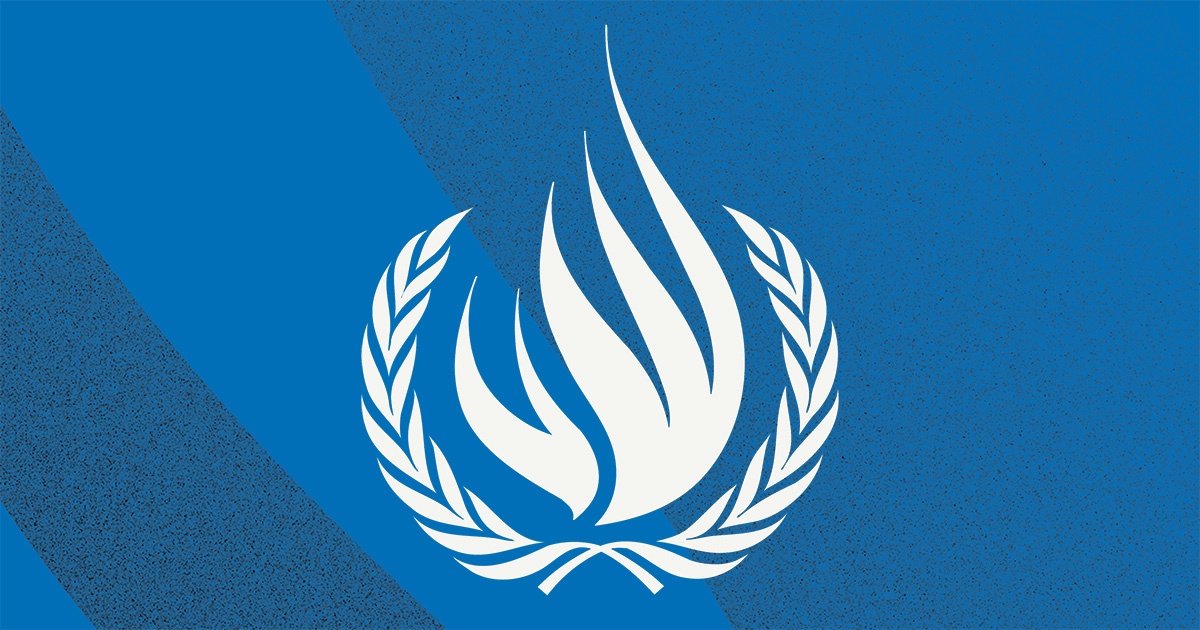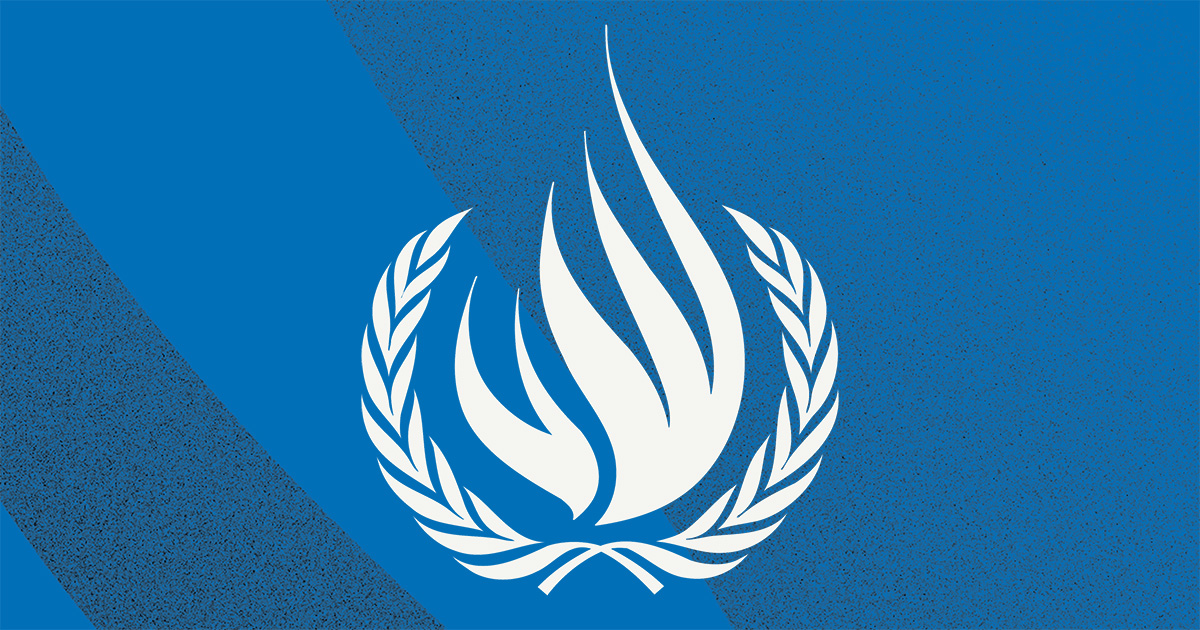
DELIVERED BY
Volker Türk, UN High Commissioner for Human Rights
AT
Countering religious hatred constituting incitement to discrimination, hostility or violence (Human Rights Council resolution 53/1)
LOCATION
Geneva
Mr. Vice-President,
Excellencies,
Distinguished delegates,
As this Council knows, dialogue is key to mutual understanding.
It fosters tolerance. It nurtures trust and respect for our fellow human beings.
Yet peaceful dialogue – and peaceful coexistence - is being increasingly fractured around the globe by speech and actions that seek to divide, to inflame and to spread hatred.
Since the Council’s urgent debate in July on this topic, publicly staged burnings of the Qur’an have persisted in some countries.
I want to emphasize once again that I strongly reject these disrespectful and offensive acts, especially those which have the clear aim to provoke violence and stir division. They are acts which have had a deeply personal impact on millions of individuals and communities, cutting to the core of their identity and values.
Human Rights Council resolution 53/1 noted with deep concern the rising incidents of desecration of places of worship and religious symbols across the world, calling for immediate action to address it.
In response, my Office is charting a roadmap for follow-up.
Today’s dialogue is but the first step.
We have issued a call to all States and other stakeholders for comments on the resolution, and in the coming months, we will facilitate a broad consultation process with a view to producing recommendations for the way forward. I look forward to receiving your insights and proposed measures, notably based on lived experiences and understanding. We have already received a number of responses from Member States, and we know a number of others are forthcoming.
I hope this process will ultimately provide a blueprint for countries to adopt legal and law enforcement frameworks and robust policies to counter the scourge of religious hatred – in line with international human rights law – and to act swiftly to ensure accountability. And I look forward to discussing these issues further at the next two sessions of the Council, including the presentation of my Office’s report in June next year.
Mr. Vice -President,
Resolution 53/1 has requested that I update the Council today on the various drivers, root causes and human rights impacts of religious hatred constituting incitement to discrimination, hostility or violence, and to highlight gaps in existing national, legal, policy and law enforcement frameworks.
For centuries, religious hatred – much like all forms of hate – has been rooted in prejudice, ignorance, or a deep-seated fear of the other.
In the profound and painful legacies of past conflict, where religion has been weaponized and manipulated for political gain.
In miscommunication, misunderstanding, and ethnocentric mindsets which feed off the belief that one group is superior to another.
And when roots are watered, they take hold, and grow deeper, and stronger.
Religious hatred today is being driven by multiple factors.
Politicians and leaders promoting policies which divide, polarize and suppress voices of dissent.
A rising tide of populism marked by dangerous identity politics which thrives on nationalism and fearmongering.
Or by education systems which fail to teach their pupils respect, tolerance and understanding.
Religious hate speech, a phenomenon that is far from new, is now unfolding unchecked. Online, social media algorithms are amplifying hateful messages and nourishing the echo chambers of ignorance.
We are seeing further iterations of Islamophobia fed by similar irrational prejudices experienced after the 9/11 terror attacks. Particularly in Europe, Asia and North America, harmful stereotypes are being pushed deeper. Entire communities are dehumanized, with Muslim women and girls often bearing the brunt of verbal abuse, physical intimidation and death threats, or – even worse – actual violence.
But religious hatred – and the hate speech which amplifies it – has no borders, and is not limited in scope. Across the globe, it is also targeting Ahmadis, Baháʼís, Buddhists, Christians, Hindus, Jews, Sikhs, Yazidis, as well as atheists and many others.
The human rights impacts of religious hatred and discrimination are clear.
They thwart social progress, exclude and polarize.
They perpetuate mistrust and stereotypes that undermine human dignity.
They humiliate, and may lead to incitement of violence – or to violence itself.
They can erode social cohesion.
This has real impact on people’s lives. On their personal safety. On their ability to enjoy their rights to participate, to freely associate, to speak up, to be free from violence and discrimination. On their capacity to express their faith freely, without fear.
Mr. Vice-President,
In the face of such real-world consequences, gaps in national policy, legal and law enforcement frameworks are letting hate and discrimination slip through the cracks.
Member States can and must do more.
Training initiatives for law enforcement officers and the judiciary, faith-based actors, teachers and media professionals in combating religious hatred need to be part of a comprehensive approach which integrates faith literacy, better understanding and sensitivity, and clear measures to address discrimination.
In some countries, religious minorities are facing severe discrimination in the job and housing markets, within criminal justice systems, and beyond.
Religious profiling continues in national security responses.
And refugee and migration policies which appear to favour people of some religious backgrounds over others can have life-changing consequences for the right to seek and enjoy asylum, as well as for protection and assistance for migrants. They feed perceptions of double standards in the value of human worth.
We also see many States failing to uphold their international obligations to enact and enforce comprehensive anti-discrimination laws, and communities are left without remedy when their rights are violated.
The denial of individuals and communities affected by religious hatred to participate in decision-making on policies that directly impact their lives, closes the doors to shape solutions that will actually work.
This is not to say governments are not making efforts to fight religious hatred in their laws and policies. Many are. But these must be tailored with care, employing proportionate measures that are applied equally. Where such laws are based on censorship, suppression and discrimination, they can silence legitimate criticism and debate, and prevent rather than protect the exercise of freedom of religion or belief, as well as other fundamental freedoms.
Mr. Vice-President,
Addressing these deeply complex issues goes beyond the scope of legislation and law enforcement frameworks alone.
They require nuanced and tailored approaches for which the United Nations has developed a number of pertinent tools. The Rabat Plan of Action, developed by my Office, can help navigate the fine line between free speech and incitement, assessing the context, speaker, intent, content, extent and likelihood of harm in each case.The UN Strategy and Plan of Action on Hate Speech aims to support governments, the private sector and societies in tackling hate speech, together. In a recent report, the Secretary-General highlights the transformative power of peer-to-peer learning to build respect and understanding across religions and beliefs. And the “Faith for Rights” framework facilitates cross-disciplinary reflection and action against incitement to religious hatred.
But – as the Qur’an burnings have so clearly shown, as well as the many other incidents of religious hatred around the world – much more is needed to fight the root causes and drivers of hate.
We need the active dismantling of harmful stereotypes.
Public information campaigns which celebrate diversity.
Inclusive and non-discriminatory education systems.
All social media platforms taking their responsibilities seriously, by listening to those concerned, and acting promptly with content moderation policies which respect human rights.
A strong, independent and diverse media that can report critically.
Accountability, justice and remedies for those who experience discrimination.
And data and research to drive policy based on evidence, not on perception.
Our dialogue today is the first step in this process, one which I hope will identify and promote creative solutions based on tolerance, respect and diversity.
A key focus for my Office will be to build on our existing work looking at major social media companies and their implementation of the UN Guiding Principles on Business and Human Rights. We intend to conduct in-depth research and analysis to explore the adequacy of existing policies and to uncover the uneven approaches within the sector.
Mr President,
Overcoming religious hatred requires a renewed social contract, with trust and respect at its base.
Where everyone, no matter who or what they believe in, can participate in safe and healthy dialogue.
Because we know that provocative speech or premeditated publicity stunts are far less likely to succeed in inciting hatred and violence in societies which promote tolerance, equality, openness and diversity.
Where State institutions function well and prioritise the human rights cause.
And where the core values of trust, compassion and respect – which cut across all religions – thrive.
I know we can all work towards this common goal.
Thank you.







